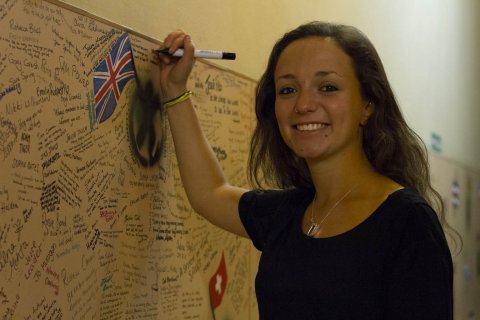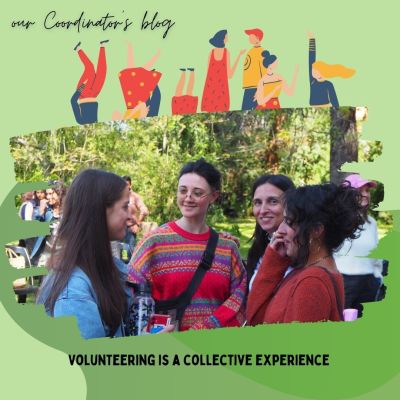Twelve weeks ago, I stumbled into the volunteer’s house full of excitement, if a little frightened. Studying Spanish in the UK, I was required to spend time in a Spanish speaking country and it seemed like a perfectly good reason to come to South America for the first time. Although I could have studied or interned here, volunteering offered me the opportunity to improve my Spanish (crucially), meet Argentinians as well as people from all over the world, and try something new. I know now that I made the right decision.
During my first meeting, I struggled: overwhelmed by the Argentinian accent and speed at which normal conversation actually flows rather than a woman on a university audiotape, I realised just how much I was going to have to improve to be able to make a difference, but this was why I was here. Gradually, with a lot of concentration, I began to be able to follow the conversation and understand what was going on. Maybe in week 3 or 4, I was able to contribute voluntarily, without waiting for someone to ask me a direct question. By week 10 I was speaking on Voluntario Global’s radio show.
Language acquisition is only a small part of how living in Buenos Aires has enhanced my university education – in England, we are not taught extensively on Argentina but simply on Latin America as a whole. Consequently, being here, talking to people, visiting museums, and observing I have learnt far more about Argentina’s complicated past than I ever have before. For example, spotting a Malvinas sticker on a car window brings to light the impact the war had, and how it is still felt to this day. The fact that you are not able to buy alcohol or go to bars after 6pm the night before an election demonstrates how Argentina is still a baby in terms of its democracy, yet equally how seriously they take it.
This passion for democracy and their country is prominent in their passion for discussing Cristina, politics and all things controversial. Coming from traditionally-reserved England, it was incredibly inspiring to hear people speak so freely, volunteering their opinion whilst listening to others. I was rather taken aback when someone first asked me what I thought about the new English PM: not that I didn't want to answer, just that it was a very direct question that back home would be deemed too personal. But afterwards I was pleased they had asked me, that they had been interested in my opinion and my country and that I felt comfortable enough to relay it.
I have thoroughly enjoyed my time in the VG office, writing articles and reports and having the chance to visit numerous different projects and speak to many different people. To handpick one thing I will take away from the experience is impossible. However, what I can say is that, the next time I want to travel I will be volunteering. It's a responsible way of travelling that allows you to see sides to the city a party hostel wouldn't. It allows you to engage in conversation with locals rather than only other travellers. And it allows you to have a positive impact on the place you are visiting. There's no other way to do it.
Thank you Voluntario Global, I'll miss you!





